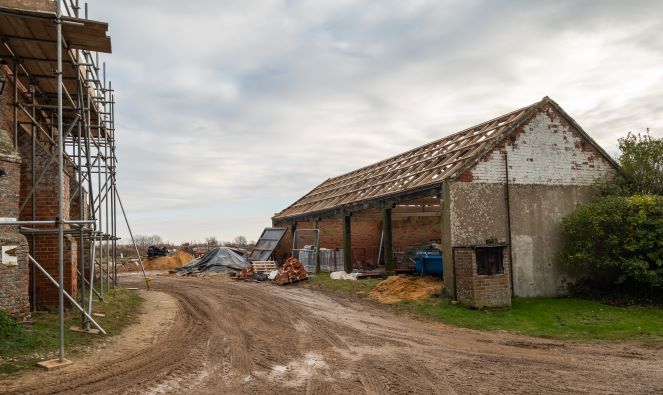In late July (2023) a public consultation was launched regarding proposed alterations to the Town and Country Planning (General Permitted Development) (England) Order 2015. The consultation seeks feedback on proposed adjustments to housing delivery via permitted development rights for change of use and certain permitted development rights that enable agricultural diversification and development on farms. The consultation period will run from 24th July 2023 to 25th September 2023.
The bodies responsible for this consultation are The Department for Levelling Up, Housing and Communities (DLUHC) and The Department for Environment, Food and Rural Affairs (DEFRA). The launch of this consultation came shortly after Michael Gove announced, as part of the Levelling Up and Regeneration Bill, the Government’s overarching housing strategy. Although this announcement mainly discussed the levelling-up of towns and cities in the North, as well as densification, brownfield development and urban regeneration across England, there was also a guarantee made that the strategy “supports rural communities, with changes to support farm diversification and development, to allow businesses to expand, and to hold more outdoor markets.”
What are the proposed changes that affect the rural sector?
Whilst this consultation involves a wide range of permitted development rights, the following proposed changes directly relate to agricultural businesses:
Class R – (Agricultural buildings to commercial use)
- Proposal to increase the maximum floorspace for change of use from 500m2 to 1,000m2
- Amendment of the right to allow for a mixture of permitted uses on the same site, allowing greater flexibility. The example of a farm shop and accommodation coexisting is given.
- Provide additional support towards farm shops, by allowing Class B2 (general industrial) change of use to process raw goods and sell them on-site, with the exclusion of livestock
- Proposed alteration to the right to permit outdoor and indoor sports, fitness and recreational activities. This does not allow for firearm or motorised vehicle uses

Class Q – (Change of use from agriculture to residential)
- Design of Class Q applications will be assessed against a local design code
- Removal of the eligibility criteria that the building must have been in sole agricultural use
- To permit the use of Class Q where the building is situated within Article 2(3) areas such as AONB’s
- Expansion of Class Q to allow the inclusion of other rural buildings, such as previously used forestry or equestrian structures
- Existing buildings proposed or Class Q must have a minimum floorspace of 37m2
- An increase of the number of dwellings per unit from 5 to a maximum of 10
- Increasing the maximum footprint of Class Q development to 1,000m2
- The simplification of the footprint of dwellings permissible under Class Q through the introduction of a maximum floorspace limit of 100m2 or 150m2 per dwelling
- The allowance of rear-facing extensions of up to 4m within the same Class Q change of use, as long as it remains within the parameters of the proposed floorspaces above (please note there are various limitations to this)
- Existing buildings proposed must have existing suitable access to the public highway

Class A – (Agricultural development on units of five hectares or more)
- An increase of the size limit from 1,000m2 to 1,500m2 of the ground area that a proposed new building or extension can cover


Class B – (Agricultural development on units of less than five hectares)
- An increase of the size limit from 1,000m2 to 1,250m2 of the ground area that a proposed new building or extension can cover
- A proposed cubic content increase for buildings extended under this right of 25% above its original cubic content
As part of this comprehensive consultation, DEFRA seeks a call for evidence and views on nature-based solutions, farm efficiency projects and farm diversification.
It is worth reiterating that at this stage, these proposed changes are subject to consultation only. As such, they have not been implemented and are by no means assured to be delivered. However, we, like all rural businesses and advisors welcome the proposed planning policy and legislation reforms, which will undoubtedly aid farms and rural landowners through times of uncertainty and volatility. It is particularly encouraging after the Government announced the extension of permitted development rights for camping, more good news recieved not so long ago.
At Dudley Peverill, we work hard to deliver farm diversification on behalf of our clients, often encountering matters arising from the above. Contact us today to discuss diversifying your farm or rural business, or how to utilise permitted development right to realise development opportunities on your farm or estate today.
Click on the button below to book your free discovery call with our farm diversification experts.
Try Our Farm Diversification Planner
You can use our Diversification Planner.
Just answer the questions and gain accurate insight into what farm diversifications would best suit you and your business.


